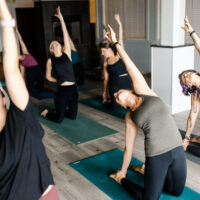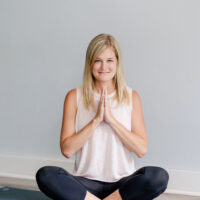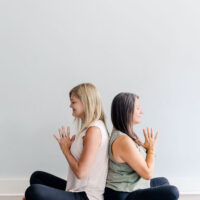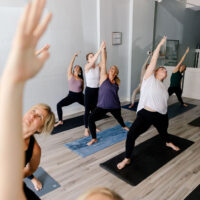The Power of the Pause
In light of recent world events and events in my own life, I’ve been pondering more lately on the power of the pause. So much of what we do comes from a place of habitual reactivity. We often speak and act without much thought. And we often think without much consciousness. In a world where being busy is often a badge of honor, having a full schedule is a sign that you’re important and acquiring lots of things means you’ve made it, it’s easy to see how we can get addicted to the races and ladders of life and lose sight of the importance of slowing down and bringing mindfulness into more moments of our one precious life.
Slowing Down is Sometimes the Best Way to Speed Up.
Perhaps if we’d only realize that taking a pause and responding to things from a clear-headed and open-hearted place actually saves us a lot of time and trouble down the road, we’d actually bring this practice more into our everyday lives. Think back to difficult situations you’ve faced in your own life – all too often our struggles could have been avoided or at least lessened had we taken that moment in between stimulus and response to ask ourselves if what we are about to say or do is good for us and good for those around us. Just those 2 simple questions can completely change the outcome of a situation.
Someone once shared with me the equation: E + R = O. Event plus response equals outcome. I’ve put my own spin on this and changed the plus to stand for pause. That’s the space between the event, which is often beyond our control and the response, which is fully within our control. In that space we have an opportunity to make a conscious choice so that our equation doesn’t become “ER = O”, whereby we act subconsciously or out of habit and might just get ourselves an undesirable outcome.
Give Yourself a Break.
What about those high stress, highly emotional moments when you can’t even think clearly? In those moments I find it’s best to give yourself permission to step away. In that case, your pause or space between might be far more than a few seconds – it could be a few minutes or in particularly difficult situations it could be days. It might look like stepping away into a room or space that’s free from distraction and giving yourself a few moments or minutes to close your eyes and take slow, deep breaths. If you feel the anger or other negative emotions boiling up, count your breaths either out loud or silently in your mind. That simple act of counting, coupled with the conscious deep breathing will create a wedge between you and your emotions, giving yourself the space to calm down and come back to a more grounded and centered way of being. If you feel your mind racing with what to say or do, hold a few of your exhales at the very bottom (when you are empty of breath) for a few seconds. This signals a release, or letting go of some of the extra stuff and can help you get into a more settled place.
Take a Deep Breath. It Calms the Mind.
We often tell others, especially children, to take a deep breath in moments of upset or frustration. That is the pause right there – we inherently know how important is it, yet when we ourselves need it, we can often forget about it. This deep breath immediately sends signals to your brain that everything is okay and rather than moving into the part of the nervous system responsible for our flight or fight reactivity, we activate the part of our nervous system coined “rest and digest” or the place in us that is more grounded, centered and relaxed. I don’t know about you, but I tend to make much better decisions and speak better words when I come from a place of calm versus a place of stress, fear or anger and research supports similar outcomes in others who’ve adopted mindfulness techniques in their lives.
Numerous studies have demonstrated how different forms of yoga, meditation and focused breathing practices can effectively reduce stress, blood pressure, anxiety, depression and a host of other health-related concerns, while also increasing focus, energy and cognitive focus. Some people may think this means going off into the middle of nowhere and sitting in a cave for 6 hours, away from all of humanity to ease away your troubles. While that may be one way of doing it, that’s not realistic nor necessary. To get on the more proactive side of the pause, just sitting for a few minutes each day can do wonders for developing and strengthening the centers of your mind responsible for compassion, empathy, creativity and reason.
One study I read focused on participants who were brand new to meditation and simply meditated for 12 minutes a day. Nothing fancy, just simple focus on the breath and then repeating a mantra (or simple phrase) over and over again in their mind. Researchers observed noticeable improvements in the overall neural functioning of the brain after just 2 months of daily practice. This was great news, as previous studies had focused largely on advanced meditators who after years of practice showed substantial differences in their brains as compared to non-meditators. This means changes in the brain can occur much more quickly than previously thought, allowing us to see the fruits of a daily practice more quickly in our lives.
You Should Sit in Meditation for 20 Minutes a Day. Unless You are Busy, then You Should Sit for an Hour.
I love this old Zen saying because it brings attention to the all too common excuse for why people don’t meditate, which is they don’t have the time. While 12 minutes might initially seem like a lot, when we take into account the pretty incredible benefits we can get for only devoting 0.008% of the 1440 minutes we get every day to sitting still and quietly observing our breath, then maybe we can acknowledge that this is far more doable than we think.
It is reassuring to know we can implement something so simple with such profound effects. Brain scans reveal the positive effects of meditation on certain areas of the brain, such as the frontal lobe. It’s here that we house our ability to be creative and compassionate and our capacity to reason and communicate effectively with others. The mechanism behind all of this is the ability to be selectively attentive and discern from the millions of pieces of information that hit us at any one point, what is important, relevant and response-worthy. This is essentially our ongoing training to enhance the power behind our pause. Through a daily mindfulness practice, we clear out unnecessary mental and emotional clutter, opening the channels to more easily stay connected to the places within that represent our best truest selves. We unhook our minds from the layers of memories, programming and patterns that have accumulated over the years and we literally re-wire our neural pathways to fire from a space of gratitude, grace and peace.
Life is a Matter of Choices and Every Choice You Make Makes You.
Given that in a split second we can alter our lives a little or a lot with the choices that we make, it seems wise to adapt the pause, the space for introspection in between event and response, more often in our lives. Sometimes that means walking away from a situation for a moment to take those deep breaths, calm down your mind and emotions and ground yourself. We would be a more evolved society if we gave ourselves and other the grace to do this. Not everything needs or deserves an immediate response or reaction. Not everything needs or deserves a quick judgment or decision. And the beauty of it is, the more you practice the pause, whether that’s in your daily dedicated meditation practice or a few deep breaths between stimulus and response, the less you’ll find you need to take them. You’ll already be more connected to the place inside of you that’s inherently peaceful, loving, patient and intuitive and those right thoughts, words and actions will naturally flow from you.
May You Know the Beauty of Your Own True Nature.
Alissa Rodgers is a mom of 3 boys, business owner, yoga teacher and curious student with an insatiable hunger for learning and growing both through her own life experiences and through reading, practicing and relating with others. Through building a thriving yoga business with 7 locations in Columbus, OH, she understands the power of community and the importance of surrounding yourself with people, places and resources that inspire and lift you up. In her quest to learn tools, tips and practices that support her in being her best, she strives to give back the helpful things she’s learned along the way in the hopes that it may help others rise to their own greatness.





